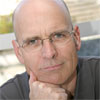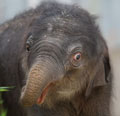 Climate change denialism has plugged into some very sick strains in society according to the behaviour described by Clive Hamilton in the first of a series of articles in the debate forum on the ABC website. He describes how Australia’s most distinguished climate scientists have been subjected to a torrent of aggressive, abusive and at times threatening emails each time they enter the public debate through a newspaper article or radio interview. “Apart from the volume and viciousness of the emails, the campaign has two features – it is mostly anonymous and it appears to be orchestrated.” I recommend reading his article to get a full picture of the attacks, though prepare yourself to be shocked by the blind hatred and anger expressed in the crudest of language. It’s cyber-bullying of a very nasty kind, apparently intended to intimidate the targets, who also include some journalists, and to make them reluctant to participate further in the climate change debate. Last month I reported James Hansen writing in a recent essayof vicious personal messages being sent to principal scientists almost daily – he didn’t elaborate, but it’s apparently not a peculiarly Australian phenomenon.
Climate change denialism has plugged into some very sick strains in society according to the behaviour described by Clive Hamilton in the first of a series of articles in the debate forum on the ABC website. He describes how Australia’s most distinguished climate scientists have been subjected to a torrent of aggressive, abusive and at times threatening emails each time they enter the public debate through a newspaper article or radio interview. “Apart from the volume and viciousness of the emails, the campaign has two features – it is mostly anonymous and it appears to be orchestrated.” I recommend reading his article to get a full picture of the attacks, though prepare yourself to be shocked by the blind hatred and anger expressed in the crudest of language. It’s cyber-bullying of a very nasty kind, apparently intended to intimidate the targets, who also include some journalists, and to make them reluctant to participate further in the climate change debate. Last month I reported James Hansen writing in a recent essayof vicious personal messages being sent to principal scientists almost daily – he didn’t elaborate, but it’s apparently not a peculiarly Australian phenomenon.
In a second article Hamilton looks at who is doing the orchestrating. “Without access to ISP logs, it is difficult to trace the emails to a source. However, it is clear that hard-line denialists congregate electronically at a number of internet nodes where they engage in mutual reinforcement of their opinions and stoke the rage that lies behind them.” On such websites a frenzy of outlandish conspiracy theories and vilification of individuals often follows posts which make highly personal attacks on individuals who speak in favour of mainstream science and measures to combat global warming. Hamilton doesn’t suggest that the sites he goes on to mention are responsible for organising the cyber-bullying attacks on scientists and others, but they provide the material which is tailor-made for the kind of psyche which is all too ready to pour out hatred and anger. He posits: “Climate denialism has been absorbed by an older and wider political movement, sometimes called right-wing populism.” The movement is driven by feelings of angry grievance. “Those who identify with it see themselves as anti-liberal, anti-elitist and anti-intellectual.” He considers that the energy of this wider populist movement has fed into climate change denialism, because it recognises familiar enemies in mainstream scientists and in people socially concerned by the prospect of global warming.
In his third article in the series, published today, Hamilton discusses the role of think tanks funded by oil money in the effort to discredit climate science and stop action on climate change. He refers to the carefully planned strategy developed in the mid-1990s, commissioning “independent” experts to “make the lack of scientific certainty a primary issue in the debate”, citing Jim Hoggan’s book Climate Cover-Up (reviewed here on Hot Topic). Various Australian think tanks are surveyed which have served as “conduits for the stream of anti-science pouring out of their kindred organisations in the United States. They have also been instrumental in publicising and promoting the work of Australian sceptics such as Ian Plimer and Bob Carter.” They need funding, but in the end their motives are political rather than commercial.
A hatred of environmentalism is what Hamilton sees as uniting the various arms of the denialist war on climate science. “Environmentalism is variously seen to be the enemy of individual freedom, an ideology of smug elites, an attack on capitalism and consumerism, and the vanguard of world government.”
In conclusion he appeals to conservative leaders who accept the science to speak out loudly and clearly about the need to take action. It is in their hands to break down the belief that global warming is somehow a left-wing cause.
There are two more articles to come from Hamilton in what will be a five-part series, but I’ll leave it to readers to follow him further if they wish. The burden of his concern is pretty clear from what he has already written and I thought it worth communicating now. Incidentally Hamilton’s latest book Requiem for a Species is due for publication in a couple of months and I expect to review it here.
Like this:
Like Loading...

 Australia’s CSIRO and Bureau of Meteorology have released a
Australia’s CSIRO and Bureau of Meteorology have released a  Climate change denialism has plugged into some very sick strains in society according to the behaviour described by Clive Hamilton in the
Climate change denialism has plugged into some very sick strains in society according to the behaviour described by Clive Hamilton in the 